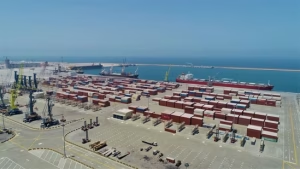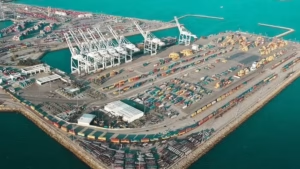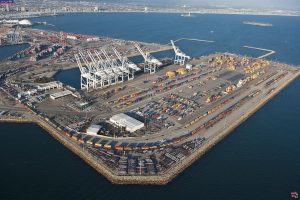New Delhi – The United States has made a significant policy shift by revoking the Chabahar Port sanctions waiver that was originally granted in 2018, creating substantial challenges for India’s regional connectivity ambitions. The decision exposes individuals and entities involved in port operations to penalties under the Iran Freedom and Counter-Proliferation Act (IFCA), marking a major escalation in US-Iran tensions.
The Chabahar Port sanctions revocation will become effective on September 29, giving stakeholders minimal time to adjust their operations and compliance strategies. This timeline creates immediate pressure for Indian companies and officials involved in the port’s development to reassess their involvement and potential exposure to US penalties.
Impact on India’s Strategic Infrastructure Investment

India faces considerable challenges from the Chabahar Port sanctions implementation, particularly given the country’s substantial financial and strategic commitments to the project. An Indian state-run company has been actively engaged in developing a terminal at the strategically located port, viewing it as crucial for regional trade and connectivity initiatives.
The Chabahar Port sanctions directly threaten India’s $250 million credit facility agreement signed with Iran in May 2025, which was specifically designed to support infrastructure development at the port in the Gulf of Oman. This 10-year operational agreement now faces uncertain prospects under the renewed sanctions regime.
India’s investment in the Chabahar Port sanctions environment reflects the country’s broader strategic objectives of establishing alternative trade routes that bypass Pakistan while strengthening ties with Central Asian nations. The port serves as a critical gateway for India’s regional outreach efforts and humanitarian assistance programs.
Trump’s Maximum Pressure Policy Implementation


The US administration has justified the Chabahar Port sanctions revocation as part of President Donald Trump’s “maximum pressure policy” against the Iranian regime. This policy framework aims to isolate Iran economically and diplomatically through comprehensive sanctions targeting various sectors of the Iranian economy.
Under the renewed Chabahar Port sanctions framework, the US State Department has warned that “persons who operate the Chabahar Port or engage in other activities described in IFCA may expose themselves to sanctions under IFCA.” This broad language creates uncertainty for international partners and investors considering involvement with the facility.
The timing of the Chabahar Port sanctions announcement aligns with broader US efforts to restrict Iran’s economic activities and limit its ability to generate revenue through international trade partnerships and infrastructure projects.
Expansion Plans Under Threat

The Chabahar Port sanctions revocation comes at a critical time when Indian companies were reportedly planning significant capacity expansions and infrastructure improvements. Plans included increasing the port’s capacity to 500,000 TEUs and constructing 700 kilometers of railway tracks connecting Chabahar to Zahedan.
These ambitious expansion projects under the Chabahar Port sanctions environment were scheduled for completion by mid-2026, representing a substantial investment in regional connectivity infrastructure. The railway connection would have enhanced the port’s utility as a trade gateway between India, Iran, Afghanistan, and Central Asian markets.
Also Read: Trump Modi Ties: Powerful Reaffirmation During UK State Visit
The Chabahar Port sanctions uncertainty may force Indian companies to delay or reconsider these expansion plans, potentially setting back regional connectivity objectives by several years while alternative arrangements are explored.
Historical Significance and Humanitarian Role

Beyond commercial considerations, the Chabahar Port sanctions impact extends to humanitarian operations that have used the facility for aid distribution. In 2023, the port facilitated the shipment of 20,000 tonnes of wheat aid to Afghanistan, demonstrating its strategic importance for regional humanitarian efforts.
The facility has also supported environmental initiatives, including the 2021 shipment of environmentally friendly pesticides to Iran. These activities highlight how Chabahar Port sanctions could affect not only commercial trade but also humanitarian and environmental cooperation in the region.
Regional Connectivity Implications


The Chabahar Port sanctions revocation represents a significant setback for India’s regional connectivity strategy, which relies on alternative routes to traditional Pakistan-controlled passages. The port’s strategic location provides India with direct access to Afghanistan and Central Asian markets without dependence on Pakistani territory.
The uncertainty created by Chabahar Port sanctions may force India to explore alternative arrangements or seek exemptions through diplomatic channels. This situation could potentially delay India’s broader connectivity initiatives and impact its influence in regional affairs.
Future Compliance and Strategic Adjustments
Indian companies and government agencies must now navigate the complex Chabahar Port sanctions landscape while maintaining their strategic objectives. This may require sophisticated compliance programs, legal restructuring, or seeking alternative partnership arrangements that minimize exposure to US sanctions.

